The Brand recommendation of Yunnan Coffee Bean introduces the characteristics of Yunnan small grain coffee producing area
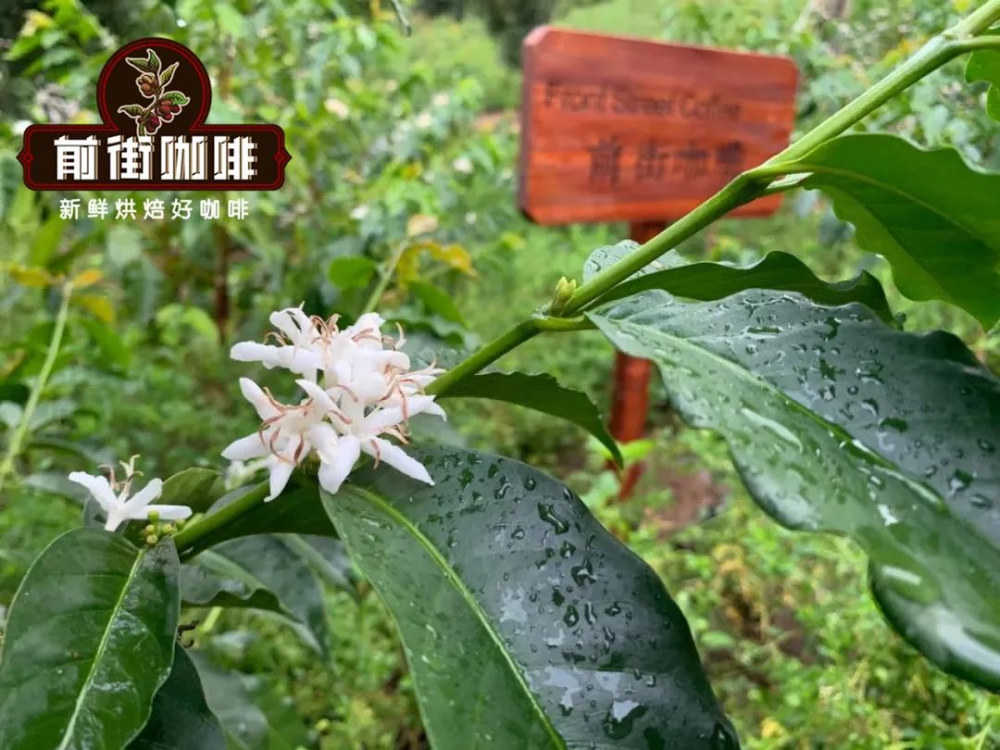
Nowadays, the atmosphere of drinking coffee among young people in China is getting hotter and hotter, and we have more and more choices in coffee shops. Under the tide of boutique coffee, Yunnan coffee has become famous, and the major chain brands have launched Yunnan coffee products one after another, which shows the rapid development trend of Yunnan coffee.
Why are most of the varieties of small grains in Yunnan Katim?
The cultivation of Yunnan coffee began in 1904 when a French missionary brought coffee seeds to the valleys of Binchuan County in Yunnan Province and planted the first Arabica coffee trees. What Yunnan Cajun calls "small-grain coffee" refers to the Arabica variety, in contrast to the medium-grain variety Robusta grown in Hainan.
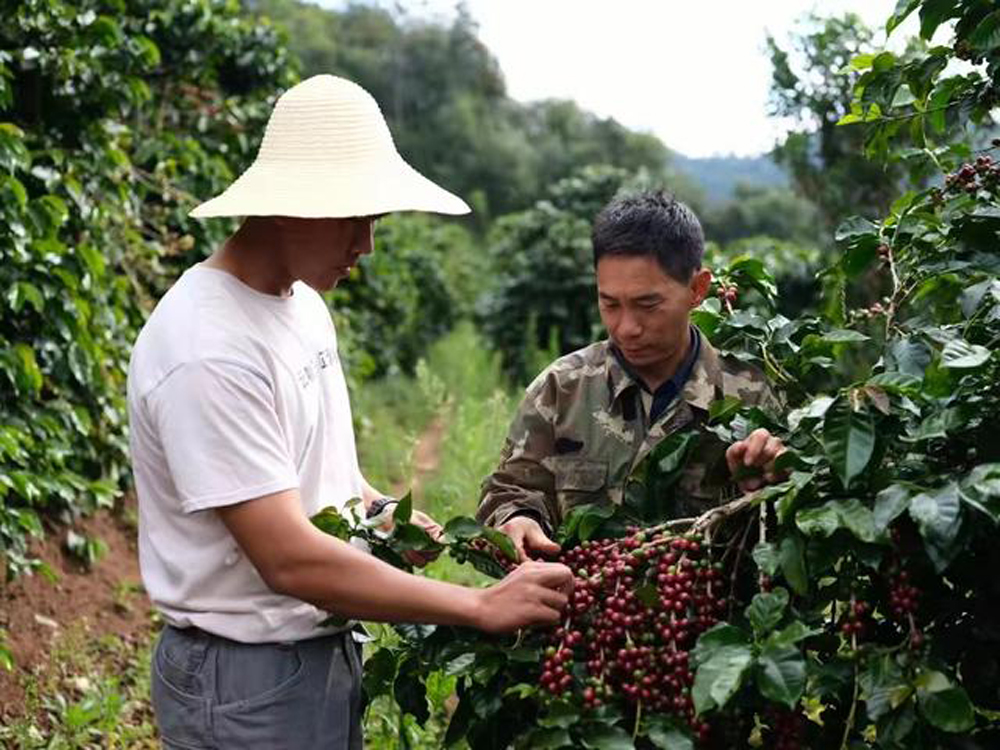
In the mid-1950s, in order to provide coffee beans to the Soviet Union, it began to further expand the scale of cultivation, according to research, at that time widely spread are ancient tin card varieties. In the following decades, many cities in Yunnan began to expand their acreage, but a large-scale leaf rust broke out, resulting in the death of coffee trees in large areas, so many farmers began to switch to other crops.
Since the 1990s, with the surge in global coffee consumption, overseas coffee giant Nestl é set out to open up new coffee producing areas, so it took a fancy to Yunnan Pu'er, which is located on the coffee belt. Nestl é has set up a branch in China to support the development of Yunnan coffee industry in many ways. It not only introduced high-yield and disease-resistant varieties such as Katim, but also promised to buy Yunnan coffee beans at the American futures price at that time as raw materials. These measures not only further expand the planting area of coffee in Yunnan, but also increase the enthusiasm of coffee farmers. At the same time, it has also established the Katim variety to replace the ancient tree species iron pickup, and become the main variety of coffee in Yunnan.
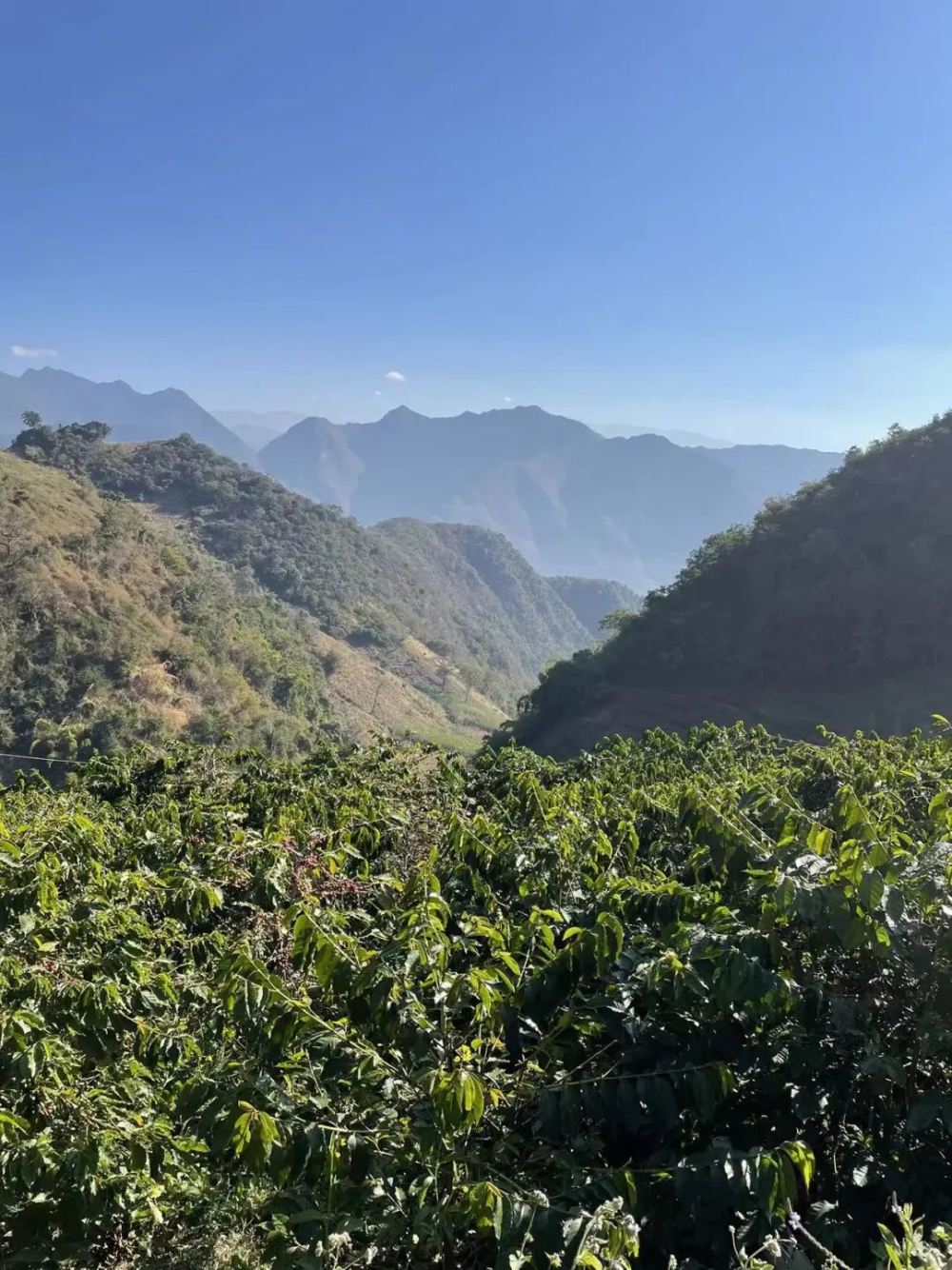
What breed does Katim belong to?
Although Katim is classified as Arabica, Katim is genetically a combination of Arabica and Robusta, carrying 25% of the robusta gene.

Katim inherited the characteristics of Robusta, with strong disease resistance and yield, coffee beans will be rich in oil after roasting, but also with the "devil flavor" of Luodou. The flavor performance in the cup test is often not as good as the pure Arabica varieties at the same altitude, such as Kaddura, bourbon and so on. If Yunnan wants to improve the overall quality of coffee, it needs to be changed. In recent years, many new varieties have gradually appeared in Yunnan, such as Rose Summer. But Qianjie should remind everyone that a change cannot be achieved in one step. It takes 3-4 years for a new coffee variety to blossom and bear fruit, and it takes 4-5 years to reach mass production. It takes 2-3 generations to adapt to the new environment, about 15-20 years.
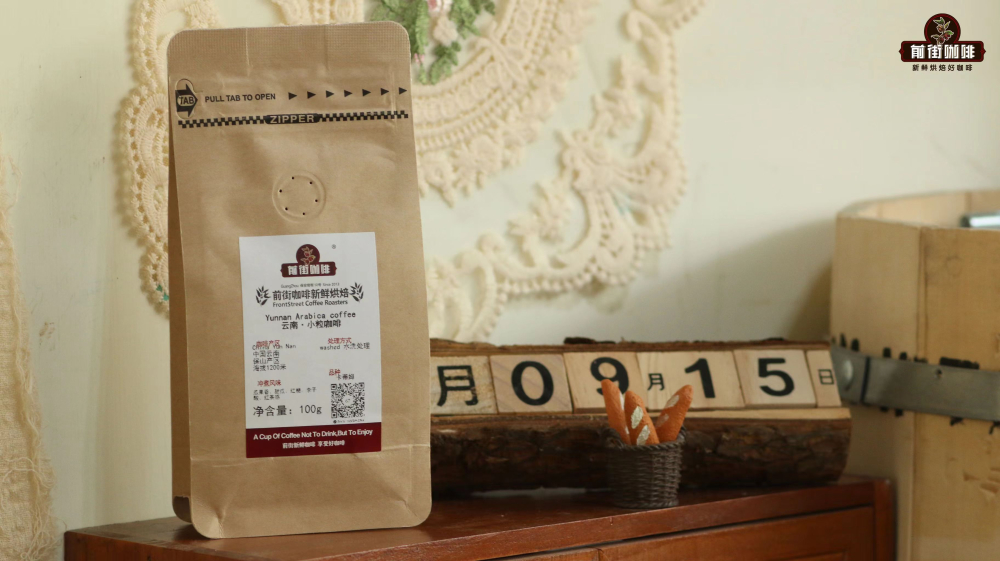
Qianjie believes that if you want to understand Yunnan coffee, you should first understand the flavor characteristics of the producing area, so the Yunnan coffee on the shelves on Qianjie is a Katim variety selected from the Baoshan producing area, which is washed and launched in a 100-gram small package. so that everyone can have a taste of Yunnan. Qianjie believes that Katim coffee grown in Yunnan has a neutral flavor of nuts, brown sugar and plums.
Are there any other varieties grown in Yunnan besides Katim? Of course, the coffee trees bred by Qianjie in Lincang, Yunnan Province in 2013 are all ancient varieties of iron pickup. After 5 or 6 years of cultivation, the first batch of results were finally harvested in the street before 2013, and produced in the way of sun treatment, named "Qianjie 2020".
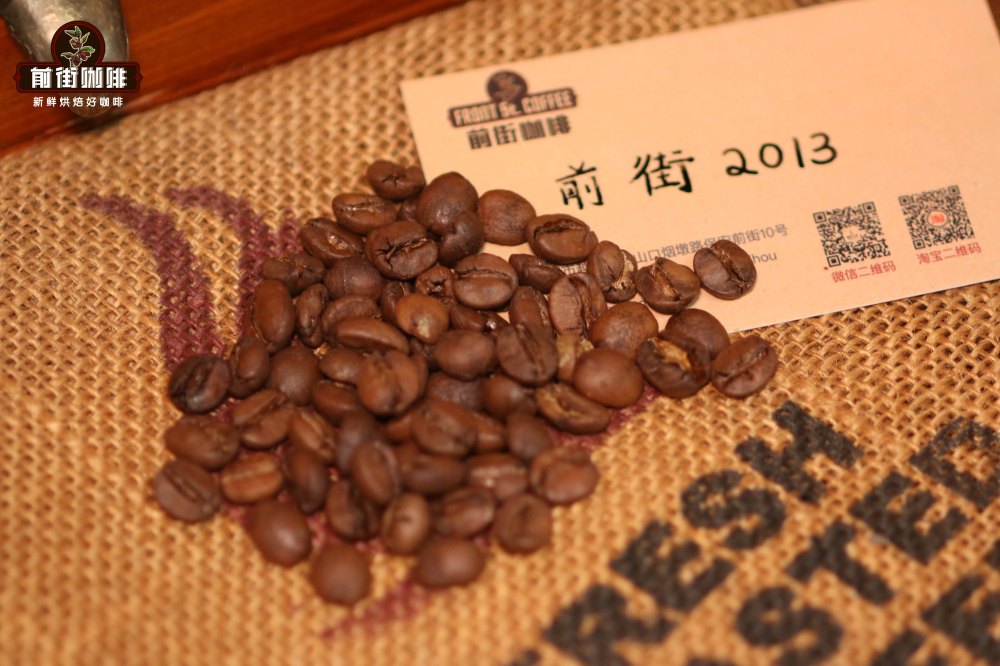
What are the most common post-processing methods for Yunnan coffee?
From the fruit of a tree to the delicious coffee in our cup, we need to go through many steps, such as picking, post-processing, grading and classification, acquisition, roasting, brewing and so on. In addition to the variety, the way of post-treatment affects the flavor trend of coffee to a great extent.
At present, there are novel flavor enhancement methods on the market to cover up the defective taste of Yunnan bean itself, and add a lot of flavor to it and increase the price. Qianjie feels that this does not really retain the taste of Yunnan coffee, but also misleads consumers. After tasting Yunnan coffee beans with special treatment, some friends feel that the aroma is particularly prominent, so they think that this is the mainstream processing method of Yunnan coffee. In fact, most Yunnan coffee farmers are in difficult conditions and do not have high-priced processing equipment, so the vast majority of Yunnan coffee beans can only be treated naturally, that is, washing and solarization.
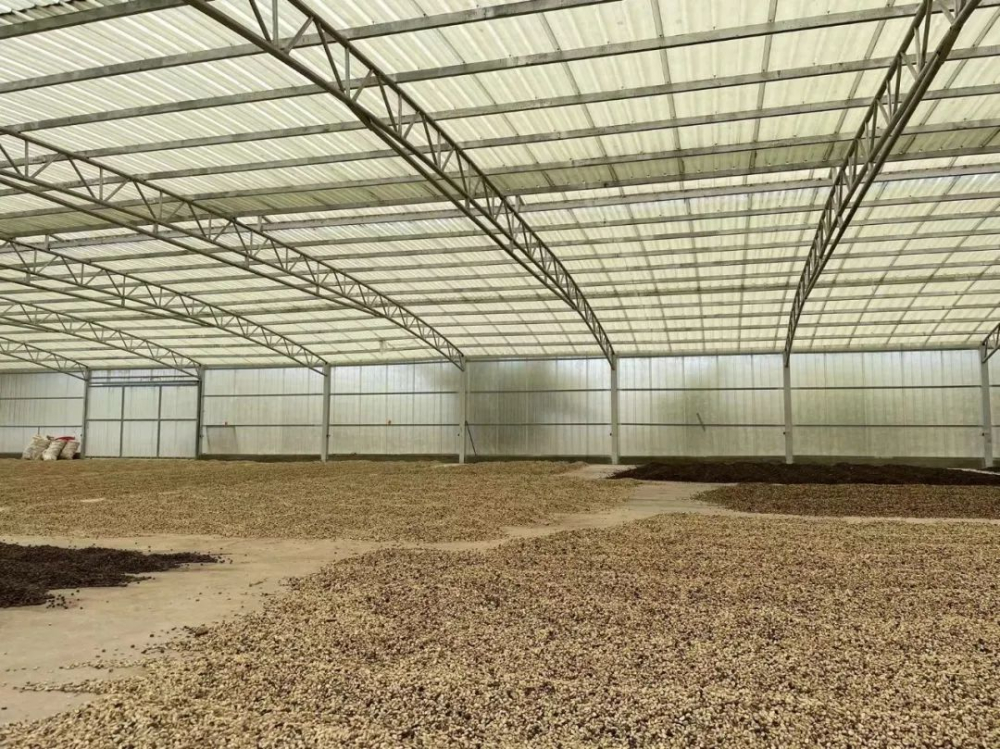
Washing is to remove the peel and pulp of the picked coffee fruit by a practical machine, put the peeled coffee beans into a fermentation tank for fermentation, decompose the pectin layer by fermentation, wash the fermented coffee beans repeatedly with clean water to remove the decomposed pectin, and finally dry the coffee beans for 1 week or 2 weeks. Washed Yunnan coffee not only reduces the defect rate, the quality of the coffee produced is more stable, but also makes it more clean, and the coffee in the cup can feel the most primitive flavor of Yunnan coffee. This is why Qianjie gave priority to the batch of washing treatment when launching the "Yunnan facade representative" rations beans.
How does Yunnan coffee taste?
When talking about the flavor characteristics of Yunnan coffee in the current street, some friends describe it as chocolate, some say it is like sweet potatoes, and some friends think it is like Sanhua Li. Qianjie believes that the flavor of Yunnan small grains belongs to the neutral and balanced tonality, that is, there are both sweet and sour. Therefore, Yunnan coffee in Qianjie is moderately roasted, highlighting the roasted aromas of chocolate and nuts while retaining part of the acid. Yunnan small grain grain beans washed from the cup test in Qianjie show the aroma of herbs, nuts, caramel, chocolate, brown sugar, sweet melons and fruits, and the sour quality of plums.

After buying Yunnan coffee beans, many guests asked Qianjie: how to cook them? What are the recommended cooking parameters? If you want to feel the taste of Yunnan coffee, Qianjie suggests that you should taste the black coffee by hand.
Hand punch parameters of front street:
Filter cup: hario v60
Powder content: 15g
Water temperature: 90 degrees Celsius
Degree of grinding: pass rate of No. 20 screen 75%
Gouache ratio: 1:15
Grinding degree and water temperature: precisely because the flavor attribute of Yunnan coffee is neutralized and balanced, too high warm water and too fine grinding degree can easily lead to excessive extraction of coffee, release too much bitter macromolecular flavor substances, and too low water temperature and too coarse grinding degree, on the contrary, it leads to insufficient extraction and coffee is easy to be tasteless. So Qianjie will choose medium water temperature and grinding degree, 90 degrees Celsius hot water for extraction, coffee powder thickness for the Chinese standard 20 sieve pass rate of 70%, stores EK43s- scale 10.5.
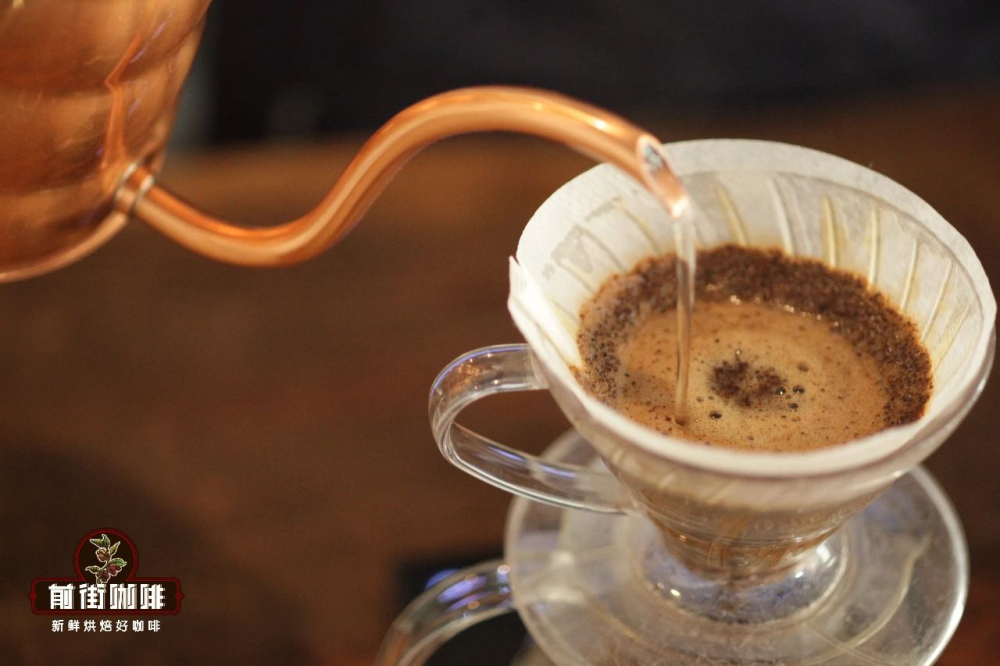
Three-stage water injection: wet the powder bed with twice as much water as coffee powder to form a drum and steam for 30s, then fill the small water from the inside to the outer circle to 125g, wait for the powder bed to drop to half of the filter cup, and continue to inject the same fine water into the third section to 225g, until all the coffee liquid has been filtered and remove the filter cup for about 2 minutes.

Professional coffee knowledge exchange more coffee bean information please follow the coffee workshop (Wechat official account cafe_style)
For more boutique coffee beans, please add private Qianjie coffee on Wechat. WeChat account: qjcoffeex
Important Notice :
前街咖啡 FrontStreet Coffee has moved to new addredd:
FrontStreet Coffee Address: 315,Donghua East Road,GuangZhou
Tel:020 38364473
- Prev
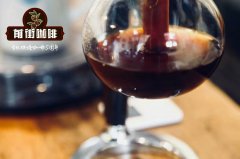
The difference of taste and flavor between Yunnan small-grain coffee iron pickup and Jamaican blue mountain coffee
Coffee workshop (Wechat official account cafe_style) Coffee Factory (official account Wechat) Coffee is one of the oldest native varieties in Ethiopia. Its parietal leaves are bronzed and its beans are oval or thin in shape. It has an elegant flavor, but has a weak physique, poor disease resistance and low fruit yield. Typica is the Allah discovered today.
- Next

How much is Yunnan Baoshan coffee beans _ Yunnan coffee bean price list _ which brand of Yunnan coffee is better
Professional coffee knowledge exchange more coffee bean information Please pay attention to Coffee Workshop (Wechat official account cafe_style) Coffee is a beverage crop with high economic value. It is known as the three largest beverages in the world along with cocoa and tea, and its output and consumption ranks first among the three beverages. Coffee is native to tropical Africa. Because coffee is rich in protein, fat, sucrose and starch,
Related
- Detailed explanation of Jadeite planting Land in Panamanian Jadeite Manor introduction to the grading system of Jadeite competitive bidding, Red bid, Green bid and Rose Summer
- Story of Coffee planting in Brenka region of Costa Rica Stonehenge Manor anaerobic heavy honey treatment of flavor mouth
- What's on the barrel of Blue Mountain Coffee beans?
- Can American coffee also pull flowers? How to use hot American style to pull out a good-looking pattern?
- Can you make a cold extract with coffee beans? What is the right proportion for cold-extracted coffee formula?
- Indonesian PWN Gold Mandrine Coffee Origin Features Flavor How to Chong? Mandolin coffee is American.
- A brief introduction to the flavor characteristics of Brazilian yellow bourbon coffee beans
- What is the effect of different water quality on the flavor of cold-extracted coffee? What kind of water is best for brewing coffee?
- Why do you think of Rose Summer whenever you mention Panamanian coffee?
- Introduction to the characteristics of authentic blue mountain coffee bean producing areas? What is the CIB Coffee Authority in Jamaica?

